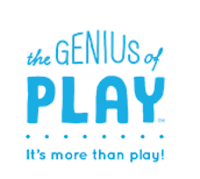 |
| Source: A World Fit for Kids! |
By Sam Piha
In a previous post, Is Play a Waste, we made the case that now is the time to reexamine the value of play, educate our stakeholders, and be unashamed to make play an important part of our afterschool programs. Below we open the door to this by explore some of the benefits of play and resources that may be useful.
In a previous post, Is Play a Waste, we made the case that now is the time to reexamine the value of play, educate our stakeholders, and be unashamed to make play an important part of our afterschool programs. Below we open the door to this by explore some of the benefits of play and resources that may be useful.
Many afterschool programs prioritize an extension of academics and homework completion over organized play, free play, and physical activity.
- The Importance of Play in Promoting Healthy Child Development and Maintaining Strong Parent-Child Bonds (1)
The Benefits of Play
According to experts “play allows children to use their creativity while developing their imagination, dexterity, and physical, cognitive, and emotional strength. Play is important to healthy brain development.” (2)
The gift of imaginative free play has been getting the short end of the stick for some time…play does not exclude learning. Play is the essence of learning and we have the research to back it up…We need to get this concept back into circulation with the mainstream that play is the highest form of learning!
- 25 Quotes about the Importance of PLAY by Jayne Clare (3)Rebecca Fabiano is Founder of FAB Youth Philly, which supports organizations and individuals that work with children and youth by focusing on improving program quality and providing professional development for staff. FAB Youth Philly also works directly with teens. In a newsletter, Rebecca wrote, “There's been so much interest in the last few years in the various ways that play can positively impact children's learning and their overall health and well being. Play is so important that this report from August 2018 describes the ways in which doctors have begun to 'prescribe' play to their patients. ‘Play is not frivolous,’ the report says. Rather, research shows that play helps children develop language and executive functioning skills, learn to negotiate with others and manage stress, and figure out how to pursue their goals while ignoring distractions, among other things.”
Is Play Good for Older Kids?
We tend not to give older kids a chance to play. When I taught 6th grade, my students loved visiting the kindergartners - not to be helpers or mentors, but to get a chance to play with the building blocks and other play things. In teens, we see play take different creative forms – theater, project-based learning, making beats, adventure challenges, etc.
 |
| Clockwise: YMCA of Greater Long Beach; Sunset Neighborhood Beacon Center; Youth Radio; and Spotlight: Girls |
Hilary Conklin was a middle school teacher and is now an associate professor in the college of education at DePaul University in Chicago, where her research interests include the preparation of middle school social studies teachers. She writes, “One of the casualties of current education reform efforts has been the erosion of play, creativity, and joy from teenagers’ classrooms and lives, with devastating effects… And while play has gotten deserved press in recent months for its role in fostering crucial social-emotional and cognitive skills and cultivating creativity and imagination in the early childhood years, a critical group has been largely left out of these important conversations. Adolescents, too—not to mention adults, need time to play, and they need time to play in school…purposefully infusing play into middle and high school classrooms holds the potential for a more joyful, creative, and educative future for us all—a future in which kids have more interesting things to do in school than count down to summer break.” (4)
Is Play Good for Adults, too?
In a recent newsletter, Rebecca Fabiano writes, “The importance of play for children is well documented. Now researchers are turning their attention to its possible benefits for adults. What they’re finding is that play isn’t just about goofing off; it can also be an important means of reducing stress and contributing to overall well-being. This 2017 article from the Washington Post goes on to talk about why play is important for adults too. We're sharing a link to a toy we use a lot in our staff meetings and trainings with adults and teens (see photo of the cubes below). They are so popular we've lost several cubes at some of our meetings and trainings. This is just one way you can encourage play or playfulness with adults.”
 |
| Source: Learning Resources |
- Ask staff to bring in a baby photo- hang them up and have everyone try to guess who the babies are.
- Have staff work together on a scavenger hunt.
- Have a dance off during lunch time!
- At your next staff meeting have one of the staff lead one of their favorite childhood games.
- Put out a puzzle in a shared space and encourage people to work on it together.”
A Few More Resources
There are many resources on the topic of play. We cite a few below.

Websites
The power of play – Part 1-5: This is a 5-part series from Michigan State University The Power of Play
The Genius of Play has created easy to use activities, provides expert advice and more. And it's all FREE for anyone to use.
Videos: There are many TED talks and other videos on play. Below are some that we like.
• TED Talk by Stuart Brown entitled “Play is more than just fun”
• TED Talk by Peter Gray entitled “The decline of play”




No comments:
Post a Comment